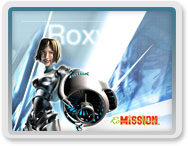
So, do you think a 53-year-old male should qualify as a "young person with cancer"?
That was how the gastroenterologist described me when I was first informed that I had a large tumour in the sigmoid colon and rectum and that it was most likely cancerous. "It is quite a large tumour for such a young man as yourself, " he said.
There are days when I feel anything but young. Still, I think I have many of the personality characteristics of someone far younger than my chronological age. In fact, just today, I borrowed the book I purchased yesterday for my son in order to read all about why video games are so good for young people (Everything Bad Is Good For You). The section on video games outlined how gaming makes you smarter by focusing on decision-making, something I have already outlined for friends and family members wondering why my wife and I allow our two sons to spend so much time playing World of Warcraft on their computers.
Which brings me to the point of today's blog entry - cancer gaming, a kind of why-didn't-I-think-of-that situation.
A non-profiit Cailfornia company founded in 2001, called HopeLab, has created an interactive 3rd-person shooter video game called Re-Mission in which players pilot a nanobat called Roxxi through the body of a fictional cancer patient destroying cancer cells and defending the body against side-effects.
The game manual looks interesting. In the Table of Contents, for example, there are a cast of friendly and enemy characters which reads like a mini-textbook of information about cancer.
Friendly Characters
B cells and dendritic cells, macrophage and T cells, platelets, red blood cells
Enemy Characters
Bacteria, brain tumor cancer cells, fat globule, leukemia cells, lymphoma cells, mouth sores, mucous drops and mucuous sludge, neuronal impulses, osteosarcoma cells, stool jag, Reed-Sternberg cells
A study was conducted by HopeLab to see if there were potential health benefits to those playing the game (for the full outcomes study report see http://www.hopelab.org/docs/Outcomes%20Study.pdf). The results were announced in March 2006 (about 1 week before my surgery) to the Annual Meeting of the Society of Behavioral Medicine in San Francisco. Their conclusion was "that a theory-based, data-driven intervention delivered in an appealing interactive videogame context can produce significant increases in cancer-related knowledge and self-efficacy for young people with cancer."
Sounds good to me. Because I am a cancer patient, I qualify with HopeLab to receive a single free copy of the game (but it will take 2-4 weeks before the DVD arrives). And while waiting for the game, the following cancer-related games are worth a try:

No comments:
Post a Comment